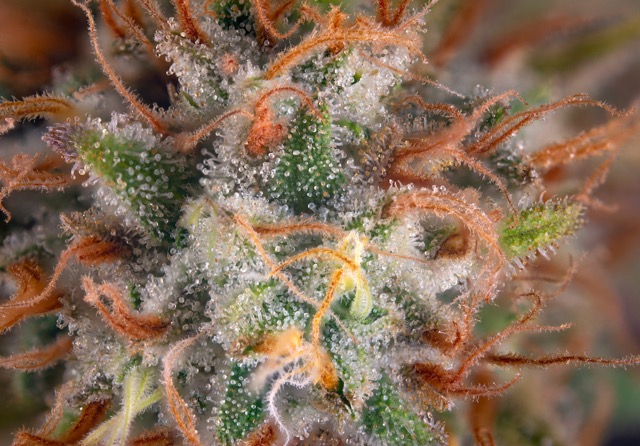
CBD Effects and possible benefits of the cannabinoid CBD
In this article, we will look at the possible effects of CBD and the areas of our lives where cannabidiol can be reached.
1. Better, deeper sleep and falling asleep.
2. Relieves anxiety, depression and stress.
3. Soothing inflammation - anti-inflammatory effect.
4. Symptoms related to cancer.
5. Alleviation of pain.
6. Multiple sclerosis.
7. Nerve pain - neuropathy.
8. Struggle with addictions.
9. It can benefit healthy skin.
10. Arthritis.
11. Lupulus.
12. Brain health.
13. Alzheimer's disease.
14. Antioxidant.
15. Antipsychotic effects.
16. Improving mood.
17. It can benefit heart health.
18. May act as an immunomodulator.
19. It can improve blood pressure.
20. Diabetes.
21. Reduce the risk of obesity.
22. Support of digestion.
23. May protect against bone diseases and fractures.
24. Epilepsy.
25. The same possible benefits for animals.
-----------------------------------------------------------------------------------------
With the recent approval of Epidiolex, a cannabis-derived drug for the treatment of two rare forms of epilepsy, people are increasingly interested in CBD (cannabidiol).
According to one study, 62% of CBD users take it for its health benefits. What's more, nearly 36% of users report that CBD treats their medical condition "very well" on its own.
However, it seems that for every proponent of CBD oil, there is also a naysayer who says it is not beneficial.
With all the conflicting information and skepticism surrounding the topic of CBD, it's understandable that you want to see the scientific evidence before using it.
In fact, the Food and Drug Administration (FDA) has recognized the need to fill the current evidence gaps associated with the use of CBD. In January 2021, they released a statement promising to build a stronger scientific evidence base to evaluate the benefits and side effects of CBD use.
You can read what CBD is and how it works in our body in this article.
1. CBD and insomnia
In addition to scientific research, there is a lot of anecdotal evidence to suggest that CBD can promote healthy sleep. One series of studies looked at the effects of CBD in 72 adults with anxiety and sleep disorders. Sleep scores improved in 48 patients during the first month of CBD use. However, the results fluctuated over time. It should be noted that CBD was generally well tolerated. Three patients reported a mild CBD-induced sedative effect.
2. CBD and anxiety, depression, stress
CBD is often touted for its ability to alleviate anxiety and depression. So far, the studies look promising. According to one 2020 review of six small control studies, one case study, and one case series, CBD effectively reduces anxiety in otherwise healthy individuals with a variety of anxiety disorders. The anxiety disorders included in the review were generalized anxiety disorder, social anxiety disorder, and anxiety related to post-traumatic stress disorder (PTSD).
Researchers administered CBD via capsule or sublingual spray in doses ranging from 6 mg to 300 mg. Overall, the review concluded that CBD is a promising alternative treatment for anxiety and anxiety-related disorders. However, the review suggests that we need more studies to standardize treatment methods and dosing to further evaluate efficacy.
CBD to reduce the fear response
Several studies highlight CBD as an effective way to reduce anxiety. One report published in 2017 by the British Pharmacological Society confirmed that CBD can reduce learned fear by disrupting fear reconsolidation and improving fear reduction.
CBD to reduce stress
CBD has been shown to be effective in reducing stress in animal studies. Additionally, in one small study, CBD reduced anxiety associated with a stressful public speaking task. Overall, CBD's stress-relieving properties appear to be directly linked to its ability to fight anxiety.
3. CBD against inflammation
It is estimated that three out of five people worldwide die from diseases related to inflammation. Diseases such as diabetes, Alzheimer's disease, cancer and respiratory diseases related to chronic inflammation are among the deadliest in the world. A more recent 2020 study suggests that CBD effectively fights inflammation by binding to the body's endocannabinoid receptors, thereby suppressing inflammation. According to another study published in The Journal of Experimental Medicine, CBD significantly reduced inflammation in rodents. It should be noted that rodents did not develop tolerance to CBD with continued use. Another 2009 review highlights the effectiveness of cannabinoids in controlling type 2 diabetes due to their anti-inflammatory profile.
4. CBD and cancer
Some studies suggest that CBD can reduce nausea, vomiting, and loss of appetite associated with cancer and chemotherapy. Research suggests that these natural remedies can improve quality of life and appetite in cancer patients. oral sprays containing CBD, such as Sativex, can relieve cancer-related pain that is difficult to control with strong opioids. Study from 2016 suggests that Sativex alleviated chemotherapy-induced nausea and vomiting. The study suggests that CBD may be an excellent way to reduce chemotherapy-induced nausea.
CBD for tumor reduction
In addition to alleviating the unpleasant symptoms associated with cancer, CBD can also slow tumor growth and destroy cancer cells. A 2020 review highlighted CBD's ability to inhibit the growth of malignant cells in various types of cancer, including breast cancer, colorectal cancer, and prostate cancer. A 2019 study pointed to an elderly man who had refused traditional lung cancer treatment. After nearly one month of self-administration of 2% CBD oil, a CT scan showed almost complete disappearance of his tumor. It also revealed a significant reduction in the size and number of mediastinal lymph nodes.
5. CBD for pain relief
More than 49,000 people died of opioid overdoses in 2019. The growing number of opioid-related deaths has made doctors more hesitant to prescribe opioids for pain. This leaves many chronic pain sufferers looking for natural, non-addictive ways to manage pain.
Chronic pain is widespread, but treatment is very difficult. It is estimated to affect nearly 50 million adults in the United States. In addition, 19.6 million adults suffer from chronic pain that interferes with work and normal lifestyles. CBD is thought to relieve pain by interacting with the body's CB1 and CB2 receptors in the endocannabinoid system. These receptors are basically small proteins that are attached to cells throughout the body. They receive signals from different types of stimuli to help cells respond. When receptors in the ECS are activated, it can relieve pain and fight inflammation.
One 2018 review focused on CBD's ability to relieve chronic pain. The studies included different types of chronic pain, including fibromyalgia, neuropathic pain, and cancer-related pain. The researchers concluded that CBD is effective in relieving pain. No adverse side effects were observed in the review of studies.
6. CBD and multiple sclerosis
Multiple sclerosis (MS) is a progressively disabling disease of the brain and spinal cord. This is because in MS patients, the immune system attacks the central nervous system. Although there is no cure for MS, treatment mainly consists of controlling symptoms. One of the most common symptoms of MS is pain caused by muscle spasms.
In addition, another 2018 study suggests that CBD may reduce symptoms such as fatigue, pain, spasticity, and mobility associated with MS. It also states that when combined with THC, CBD can counteract unwanted psychotropic effects and anxiety while enhancing its therapeutic properties. The National Centers for Complementary and Integrative Health suggests moderate benefits of cannabinoids for chronic pain and symptoms of multiple sclerosis.
7. CBD for nerve pain relief
An estimated 7% of the population suffers from neuropathic pain (NP) caused by nerve damage. Most of the research linked to CBD's effects on nerve pain relief focuses on combinations of THC and CBD rather than CBD alone. Many believe that CBD helps slow down pain signals from the nerves to the brain. This is because CBD indirectly stimulates the CB1 and CB2 receptors. When these receptors are stimulated, the signals sent from the nerves are reduced, resulting in pain relief. These receptors can also reduce inflammation in the body. Nerve pain is often related to autoimmune disorders and inflammation, so reducing the body's inflammatory response can also relieve nerve pain.
8. CBD and addiction
The report, previously mentioned by the British Pharmacological Society, also highlights CBD's ability to potentially treat substance abuse disorders. Another study found that 400 µg/dose of inhaled pure CBD for one week reduced cigarette consumption in smokers. The group consisted of otherwise healthy individuals who were ready to quit smoking. Moreover, after a night of abstinence from cigarettes, single doses of 800 mg of CBD were effective in reducing cigarette cravings.
The study concluded that CBD may have a potential effect on the motivational aspects of addiction. CBD may also help reduce stimulus-induced craving and anxiety in individuals who are abstinent from drugs and suffering from heroin use disorder. In this study, the only adverse effects reported were mild diarrhea, headache, and fatigue. CBD also reduces heart rate and the stress hormone cortisol caused by drug stimuli.
9. CBD for healthy skin
The use of plant-based treatments to treat skin problems has been known for centuries. Studies have found that CBD is no exception. Research shows that CBD oils and topicals can be beneficial in the treatment of various skin conditions. The skin has cannabinoid receptors that regulate sebum production in the sebaceous glands. This is one of the main reasons why companies have started developing topical CBD products.
CBD to help dry, itchy skin
Researchers believe that CBD can treat skin disorders such as eczema, dermatitis, and psoriasis because of its anti-inflammatory properties. A 2019 study suggests that CBD may be effective in treating dry, itchy skin. Topical creams containing CBD can also provide moisture to heal cracked and broken skin.
CBD for skin protection and healing
CBD has powerful antioxidant properties that can repair damage and reduce wrinkles caused by free radicals. The anti-inflammatory, antioxidant properties of CBD can protect the skin from harmful damage and promote healthy skin aging. It can also be effective in relieving muscle and joint pain when applied directly to the skin.
CBD and acne
One study highlights that CBD is more effective in treating acne than vitamin C and vitamin E alone. CBD is likely effective in treating acne due to its anti-inflammatory properties that reduce sebum production. Reducing the inflammation of the sebocytes that produce sebum in the skin can directly target the source of acne. A 2016 review highlights possible antifungal and antibacterial properties. When applied topically, it can reduce infections associated with acne.
10. CBD and PTSD
In addition to reducing the fear commonly associated with PTSD, CBD may reduce other symptoms associated with the disease. According to a retrospective case series published in the Journal of Alternative and Complementary Medicine, CBD has been shown to be effective in reducing symptoms and improving nightmares in PTSD patients. It should be noted that CBD has been combined with traditional treatments such as medication and dietary changes. Overall, no patient dropped out of the study due to adverse side effects and CBD was well tolerated.
11. CBD and lupus
Lupus is an autoimmune disease. The most common form of lupus is called systemic lupus erythematosus (SLE). It occurs when the immune system attacks its own tissues and internal organs. This leads to chronic inflammation and tissue damage that can negatively affect many systems in the body.
Current methods of treating lupus usually focus on reducing inflammation to relieve pain. Research suggests that CBD can reduce both pain and inflammation, two of the most unwanted symptoms associated with lupus. There is a lot of anecdotal evidence from individuals with lupus that claims CBD is effective in relieving symptoms, but we still need more scientific evidence. According to a study published in 2018 in Cellular Immunology, CBD protected against pathological T-cell invasion after spinal cord injury. T-cells are part of the immune system and can help the body fight infection. It is thought that abnormal T-cell activity may also be involved in lupus.
12. CBD and brain health
When our brain is healthy, we can perform at our peak. A healthy brain is essential for a long and healthy life. According to a new 2021 systematic review, 17 studies with 115 subjects were reviewed to measure the effectiveness of CBD on brain function. The review concluded that neuroimaging studies have shown that acute ingestion of CBD improves performance in healthy volunteers and those with an underlying psychiatric disorder. Studies have found that CBD modulated brain activity, emotional processing, visual processing, and verbal memory compared to placebo and THC.
CBD and neuroprotection
CBD may have neuroprotective properties that can reduce brain damage. According to one 2018 review, CBD may protect the brain by directly affecting the endocannabinoid system and influencing cannabinoids in the body. It also preserves cerebral circulation during ischemic events. CBD may help with Parkinson's disease by binding to ECS receptors and stimulating dopamine production. Dopamine is involved in maintaining attention and concentration, and allows the brain to control movement, thus alleviating spasticity.
CBD also increases adenosine levels in the brain. Adenosine is associated with reduced inflammation and neuroprotection. In addition, CBD may have neuroprotective effects in individuals with hypoxic-ischemic brain damage. It activates adenosine receptors in the body. Studies have also found that CBD can reduce the severity of brain damage by reducing neuroinflammation.
13. CBD and Alzheimer's disease
We've already mentioned the neuroprotective benefits that CBD offers, but studies also show direct benefits associated with administering CBD to Alzheimer's patients. According to one recent 2021 animal study, a two-week cycle of high-dose CBD improved cognition and reduced inflammation associated with Alzheimer's disease.
The study also suggests that CBD may reduce the accumulation of beta-amyloid plaque, which is a hallmark of Alzheimer's disease. Beta-amyloid usually appears in the brain 15-20 years before the onset of the disease, so using CBD could potentially delay the onset of Alzheimer's disease. Additionally, a study is currently underway to evaluate the effectiveness of THC-free CBD oil in improving restlessness in Alzheimer's patients.
14. CBD as an antioxidant
Antioxidants are chemicals that neutralize free radicalsradicals and prevent them from damaging our body. You may be exposed to free radicals from cigarette smoke, harmful household cleaners, air pollution and UV radiation. Research shows that CBD is comparable to other common antioxidants found in fruits and vegetables. Like many other plant compounds, CBD works as an antioxidant to reduce oxidative stress.
Scientists have linked oxidative stress to many age-related diseases over the years, including cardiovascular disease, chronic kidney disease, chronic obstructive pulmonary disease, neurodegenerative diseases, and cancer. One animal study published in the Journal of the American College of Cardiology further suggests CBD's potential to act as an antioxidant to reduce oxidative stress and prevent heart damage in diabetic mice.
15. CBD as an antipsychotic
High levels of dopamine can cause psychotic symptoms. Antipsychotic drugs are believed to work primarily by inhibiting dopamine receptors. However, they are known to cause unpleasant side effects and may be ineffective in some individuals.
Initial clinical studies show that CBD may have antipsychotic effects on patients with psychosis. In addition, the only reported adverse effects were mild GI symptoms and fatigue. According to one systematic review published in 2020, single-dose CBD had a short-term, moderate effect on patients with schizophrenia. However, the review found no effect on short-term cognitive effects in people with psychotic disorders.
16. CBD to improve mood
Many CBD users report improvement in mood and mood-related disorders. Serotonin is a neurotransmitter primarily related to mood. Low levels of serotonin are associated with depression. According to a 2018 study, CBD may act on multiple brain pathways affecting mood-regulating chemicals such as serotonin. CBD activated serotonin receptors, which leads to an improvement in mood.
17. CBD for heart health
Heart disease is a growing health problem worldwide. It is one of the leading causes of death in the US. High blood pressure, elevated total cholesterol and smoking are key risk factors for heart disease. While nothing is as important as dietary and lifestyle changes for heart health, research shows that CBD plays a role in supporting a healthy heart. As we mentioned earlier, CBD can lower blood pressure. This is one of the key risk factors for heart disease. Additionally, one animal study showed that CBD treatment reduced oxidative stress and inflammation and prevented heart damage in diabetic mice with cardiomyopathy.
CBD for cholesterol
CBD may also support heart health by improving cholesterol levels. One study published in the Journal of Dietary Supplements looked at 65 overweight but otherwise healthy women and men. Every day for six weeks, they received a hemp extract containing CBD or a placebo. The results showed that those who received the hemp extract had significantly improved levels of high-density lipoprotein (HDL) compared to the placebo. There were no changes in total cholesterol or LDL levels during the study.
HDL is known as "good cholesterol" because it can help remove other forms of cholesterol from your bloodstream. This is because it collects excess cholesterol in the blood and returns it to the liver, where it is broken down and excreted from the body. High levels of HDL can reduce plaque build-up in the arteries and reduce the risk of cardiovascular events. It is also important to note that during the study liver and kidney function, except for fasting blood lipids and whole blood cell count and complete blood count, remained normal with no statistical differences between the two groups.
CBD to reduce the risk of cardiovascular disease
Cardiovascular disease is an umbrella term for several different conditions that are commonly caused by atherosclerosis. Atherosclerosis occurs when plaque builds up on the walls of arteries in the body. When plaque builds up, it can obstruct blood flow and cause a complete blockage leading to a heart attack or stroke. Coronary artery disease, cerebrovascular disease, and arrhythmia are all considered cardiovascular diseases.
Research suggests that CBD may be beneficial for the cardiovascular system. In the heart, CBD treatment has been shown to protect against ischemia (lack of blood flow) and cardiomyopathy associated with diabetes. Another 2015 study suggests that CBD may prevent strokes by reducing the risk of metabolic syndrome and delaying atherosclerosis.
18. CBD as an immunomodulator
A 2021 systematic review classifies CBD as an anti-inflammatory, immunosuppressive compound with excellent immunomodulatory properties. The anti-inflammatory properties of CBD can boost the immune system by reducing inflammation, leading to a stronger immune system.
19. CBD for improving blood pressure
High blood pressure, also known ashypertension, can lead to heart attack or stroke if left untreated. In a 2015 study, researchers gave nine healthy male volunteers a single dose of 600 mg of CBD. The study found that acute administration of CBD led to a reduction in resting blood pressure and blood pressure in people under stress.
Additionally, a 2020 study in rats and humans suggests that CBD may help lower blood pressure by improving blood flow. The researchers suggest a potential benefit of CBD on cardiovascular function and blood pressure improvement in both studies, but note that more studies should be completed.
20. CBD and diabetes
One study showed that CBD can reduce the incidence of diabetes in non-obese diabetic mice. The study found that CBD significantly reduced the incidence from 86% in mice not treated with CBD to 30% in mice treated with CBD. The study also showed that CBD reduced plasma levels of pro-inflammatory cytokines. CBD can also reduce inflammation and alter glucose metabolism. Both are key factors in the development of diabetes and insulin resistance.
Another study found that when combined with THC, CBD can lower glucose levels in individuals with diabetes. However, it is important to note that the American Diabetes Association emphasizes that CBD should not be used as an alternative to traditional diabetes treatment.
21. CBD for reducing obesity
CBD can promote weight loss and reduce the risk of obesity due to its effect on the mind and body. CBD and other cannabinoids can activate serotonin and other endocannabinoids, which many believe can reduce obesity. Many of us already know that THC can stimulate hunger and appetite, but there is no solid evidence to suggest that CBD does the same. In fact, CBD can actually suppress our appetite. According to an older study in rats, CBD led to an overall reduction in food intake in rats.
In a 2011 two-week study, rats were given CBD for two weeks. The researchers gave some rats 1.1 mg of CBD and others 2.3 mg of CBD per kilogram of body weight. Both doses resulted in an overall decrease in body weight in rats. However, the higher dose resulted in greater body weight loss. One test tube study also showed that CBD can turn white fat into brown fat. This is important because brown fat is responsible for generating heat. When our body produces more heat, we also burn more calories. Healthy people of normal weight usually have more brown fat than white fat.
22. CBD to support digestion
As the use of CBD continues to grow, many holistic care professionals are recommending CBD to support a healthy gut. Since our gut contains endocannabinoid receptors, many believe that CBD can promote a healthy gut. Although research linking CBD to gut health remains limited, preclinical studies suggest it may promote a healthy GI tract and prevent disease. An older animal study suggests that CBD can treat inflammatory bowel disease by reducing inflammation in the digestive tract and enhancing the probiotic effect.
23. CBD to protect against bone diseases
and bone fractures
Bone diseases are widespread in the elderly population. As we age, we begin to lose flexibility and strength, which negatively affects our quality of life. Although human research on CBD and bone disease remains limited, animal studies suggest it may strengthen bones. According to one study published in the Journal of Bone and Mineral research, CBD improved fracture healing in rats by stimulating activity in osteoblasts, which work to build bone.
24. CBD and epilepsy
CBD has been extensively studied for its benefits for people with epilepsy. It is estimated that one-third of individuals with epilepsy continue to struggle with seizures despite proper treatment. One review looked at 550 patients with Lennox-Gastaut syndrome and Dravet syndrome. There was at least a 50% reduction in the frequency of seizures of all types in 37.2% of patients who received 20 mg of CBD compared to 21.2% in the placebo group.
25. CBD for pets
Animals have a similar endocannabinoid system (ECS) to humans. Through research, we know that the ECS plays an important role in physiological homeostasis, as it regulates almost every metabolic process in the animal's body. When the ECS is out of balance due to a lack of endocannabinoids, animals may experience symptoms such as stress, sleep problems, anxiety, lethargy, digestive problems, and more.
If the ECS is in balance, it affects the animal's ability to independently manage metabolic stress, pain, inflammation, depression and overall supports the health and systemic well-being of the individual. Therefore, it is important to stimulate the ECS with phytocannabinoids found in CBD oil and other products. These produce the same physiological effects as endocannabinoids. By administering CBD oil, we can help our four-legged friends to well-being and overall health.
Conclusion
With CBD now legal in every state in the United States, many people are interested in using CBD products. The FDA has recognized the potential of CBD to help treat many diseases and has intensified studies to fill current gaps in scientific evidence.
Although we need large studies to verify its effectiveness and side effects, the research appears to be very promising. CBD appears to be a natural adjunct to traditional treatments for a wide variety of medical conditions. We believe that you liked the article, it clarified and approached a lot, and CBD will become your good companion on the way through this beautiful life.
Did the article help you? Share it with other people on your Facebook or Instagram, or subscribe to our newsletter. We thank you.
If you are interested in this topic and you are "at home" in it, you would like to add or correct something, contact us by email at laherba@laherba.eu
Thank you and have a nice day.
"Healing Power of Hemp"

The information provided on this website is for educational purposes only. None of the information presented here is intended as a substitute for a medical diagnosis and such information cannot be considered medical advice or recommended treatment. This website does not support, approve or advocate the use of narcotic and psychotropic substances.
RESOURCES:
1. Corroon, J. and Phillips, J.A. (2018). A Cross-Sectional Study of Cannabidiol Users. Cannabis and Cannabinoid Research, [online] 3(1), pp.152–161. Available at: https://www.ncbi.nlm.nih.gov/pmc/articles/PMC6043845
2. Office of the Commissioner (2021). Better Data for a Better Understanding of Cannabidiol (CBD) Products. [online] U.S. Food and Drug Administration. Available at: https://www.fda.gov/news-events/fda-voices/better-data-better-understanding-use-and-safety-profile-cannabidiol-cbd-products
3. National Academies of Sciences, Engineering, and Medicine, Health and Medicine Division, Board on Population Health and Public Health Practice and Evidence, A. (2017). Cannabis. [online] Nih.gov. Available at: https://www.ncbi.nlm.nih.gov/books/NBK425762
4. Grinspoon, P. (2018). Cannabidiol (CBD) - what we know and what we don't - Harvard Health. [online] Harvard Health.
5. Lattanzi, S., Brigo, F., Trinka, E., Zaccara, G., Cagnetti, C., Del Giovane, C. and Silvestrini, M. (2018). Efficacy and Safety of Cannabidiol in Epilepsy: A Systematic Review and Meta-Analysis. Drugs, [online] 78(17), pp. 1791–1804. Available at: https://pubmed.ncbi.nlm.nih.gov/30390221
6. Lee, J.L.C., Bertoglio, L.J., Guimarães, F.S. and Stevenson, C.W. (2017). Cannabidiol regulation of emotion and emotional memory processing: relevance for treating anxiety-related and substance abuse disorders. British Journal of Pharmacology, [online] 174(19), pp.3242–3256. Available at: https://pubmed.ncbi.nlm.nih.gov/28268256/
7. https://www.facebook.com/NIDANIH (2015). The Biology and Potential Therapeutic Effects of Cannabidiol. [online] Drugabuse.gov. Available at: https://archives.drugabuse.gov/testimonies/2015/biology-potential-therapeutic-effects-cannabidiol
8. https://www.midlandhealth.com/general-health/7-surprising-benefits-of-cbd-oil
Terpene Talks
Your first question going forward might be, “What’s all the hoopla over terpenes anyway?”
Here’s the “hoopla” in a couple of paragraphs…
We all like to change our moods, especially when we ...
Discover Your Life Path Number and Glimpse into Your Destiny
The essence of your life can be understood by calculating a single number – your Life Path Number. This number is linked with other numerological cycles of your life and everything that should be c...
Palo Santo: Nature's Ancient Gift for Modern Life
In recent years, Palo Santo has become synonymous with space clearing and meditation rituals around the world. This sacred wooden product, which comes from South America, is popular not only for it...
The Yawanawa Tribe
Since time immemorial Yawanawa people have lived in harmony with nature on the banks of the Gregorio river in the Amazonian region that concentrates the greatest biodiversity on the planet. In this...





